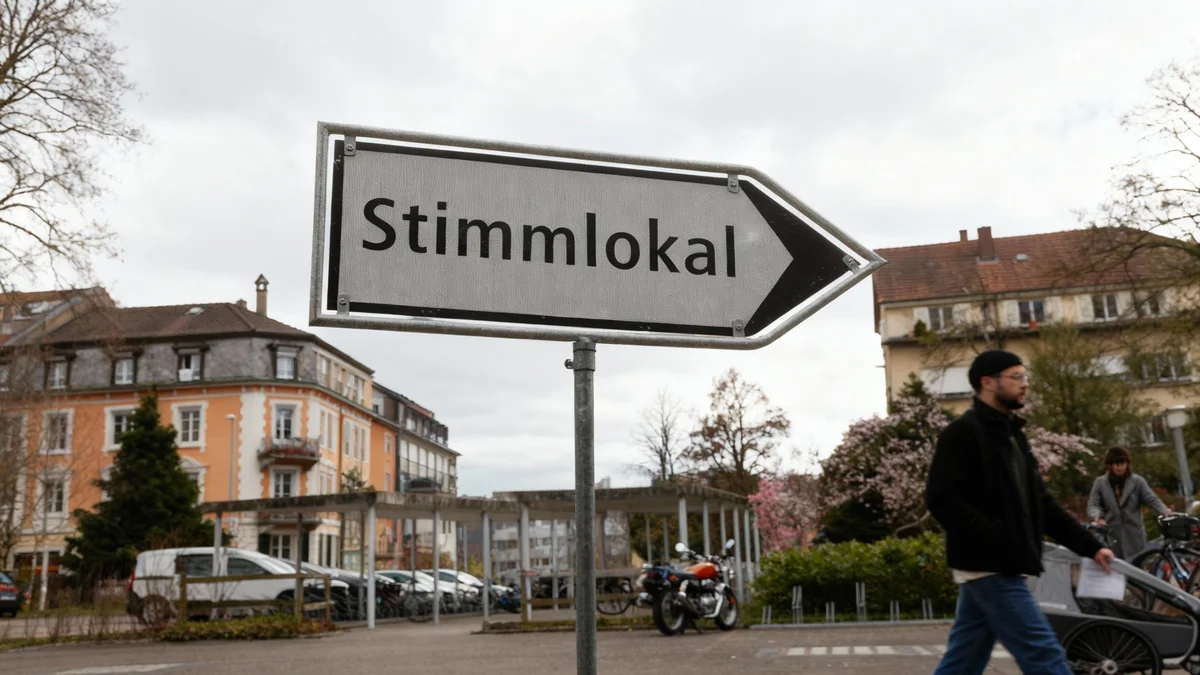The Canton of Bern is currently deliberating a significant change to its electoral system, potentially allowing municipalities to grant voting rights to foreign residents in local elections. This proposed constitutional amendment could empower local communities to decide on a matter that impacts social integration and local governance across the canton.
A public consultation period for this constitutional amendment is underway, inviting feedback until the end of January. This initiative stems from a motion passed by the Grand Council, highlighting a move towards greater local autonomy in political matters.
Key Takeaways
- Bern Canton is reviewing a constitutional amendment for communal voting rights for foreign residents.
- Municipalities would gain the autonomy to decide on granting these rights.
- Foreign residents must meet specific residency requirements: 10 years in Switzerland, 5 in Bern Canton, and 3 months in the local municipality.
- A public consultation on the proposed changes is open until January 27.
- Approximately 600 Swiss municipalities already allow foreign residents to vote.
Empowering Local Communities
The Regierungsrat, Bern's cantonal government, has initiated a consultation process on introducing optional communal voting rights for foreign residents. This means that individual municipalities would have the power to decide whether to extend voting privileges to eligible non-Swiss citizens residing within their borders.
If a municipality chooses to implement this, it would need to adjust its local regulations accordingly. This framework emphasizes subsidiarity, allowing decisions to be made at the most appropriate local level.
Eligibility Criteria
To qualify for communal voting rights, foreign residents must meet several conditions:
- Hold a valid C permit (Niederlassungsbewilligung).
- Have lived continuously in Switzerland for at least ten years.
- Reside in the Canton of Bern for a minimum of five years.
- Have lived in the specific municipality for at least three months.
- Be of legal voting age.
The Path to Constitutional Change
The current proposal necessitates a partial revision of both the Cantonal Constitution and the Municipal Law. This indicates the profound legal implications of such a change, requiring broad consensus and careful legislative work.
The consultation period is a crucial phase, allowing various stakeholders, including political parties, civil society organizations, and the public, to voice their opinions and contribute to the decision-making process. The deadline for submissions is January 27.
"Granting municipalities the autonomy for political rights is a step towards more inclusive local governance. It acknowledges the long-term contributions of foreign residents to their communities."
Background of the Motion
The initiative for this change did not originate solely from the Regierungsrat. It stems from an inter-factional motion titled "Communal autonomy for political rights!", which the Grand Council narrowly approved during its autumn 2024 session. This legislative success underscores a growing political will to address the integration of foreign residents at a local level.
A Broader Swiss Trend
Bern's consideration of communal voting rights for foreign residents is not an isolated event in Switzerland. In fact, many other Swiss municipalities have already adopted similar measures.
Currently, approximately 600 out of 2,131 Swiss municipalities have introduced voting rights for foreign residents. This demonstrates a clear trend across the country towards greater political participation for long-term non-Swiss inhabitants at the local level. The Canton of Bern, if it proceeds with this amendment, would align with a significant number of other communities that have found practical ways to include their diverse populations in local decision-making.
Impact on Local Governance
If approved, this change could profoundly impact local governance in Bern. It would allow municipalities to tailor their electoral systems to their specific demographic realities and integration policies. Communities with a high proportion of long-term foreign residents might be more inclined to grant voting rights, recognizing their economic and social contributions.
The debate around this issue often centers on principles of democracy, representation, and the practical benefits of involving all residents in local affairs. Proponents argue that allowing long-term residents to vote strengthens local democracy and fosters a greater sense of belonging and responsibility within the community. Opponents sometimes raise concerns about national identity and the scope of citizenship.
Next Steps in the Process
Following the conclusion of the consultation period on January 27, the Regierungsrat will evaluate all submitted feedback. This feedback will then inform the final proposal for the constitutional and legal amendments.
The revised proposal will then proceed through the cantonal legislative process, which includes further debates and votes in the Grand Council. Ultimately, any constitutional amendment would likely be put to a popular vote across the Canton of Bern, giving citizens the final say on this important issue.
This process highlights Switzerland's direct democratic traditions, where significant constitutional changes require public approval. The decision in Bern could set a precedent for other cantons considering similar reforms.




